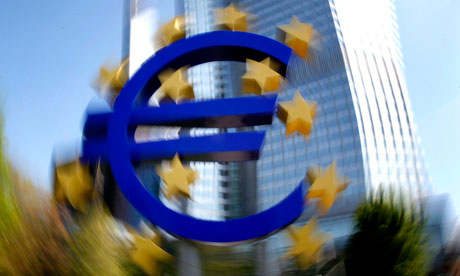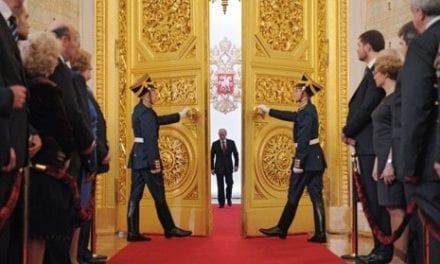Greece secured an increase in emergency funding available to its banks as Finance Minister Yanis Varoufakis said he’s confident of reaching an aid agreement with European partners this month.
The European Central Bank’s Governing Council raised the cap on Emergency Liquidity Assistance provided by the Bank of Greece by 1.2 billion euros ($1.3 billion) to 73.2 billion euros in a telephone conference on Thursday, said two people familiar with the discussion. That was more than the 700 million-euro increase granted last week. An ECB spokesman declined to comment.
The amount approved matched what Greece had sought from the ECB and comes amid growing concern about the perilous state of Greece’s finances. Varoufakis said his country isn’t looking outside Europe to resolve its troubles after Prime Minister Alexis Tsipras met with Russian President Vladimir Putin in Moscow on Wednesday.
“We should be very clear: our bailout fallout needs to be dealt with in the European family,” Varoufakis said in an interview with Bloomberg Television’s Manus Cranny in Paris. “This government is not seeking an extra-European solution to a European problem.”
Greece, Europe’s most-indebted state, is negotiating with euro-area countries and the International Monetary Fund on the terms of its 240 billion-euro rescue. The standoff, which has left Greece dependent upon ELA, risks leading to a default within weeks and the country’s potential exit from the euro area.
‘Difficult Path’
The government still said it met its obligation to pay the IMF about 450 million euros, a transaction later confirmed by the fund’s Managing Director Christine Lagarde.
“Yes, I have got my money back,” Lagarde said in response to a question after a speech in Washington on Thursday. The IMF is “completely committed” to helping Greece and is willing to respect some campaign pledges made by the Tsipras government which won January elections. “It’s a difficult path but one that we’ll just have to walk as we look at the situation,” she said.
Greek stocks and three-year notes gained after the government made the IMF payment. The benchmark equity index added 1.1 percent. Three-year yields fell 60 basis points, or 0.6 percentage point, to 20.8 percent.
Draghi Message
ECB President Mario Draghi told fellow policy makers on the call that Greece’s request for more emergency funds has to be granted in full as outflows threaten to create acute liquidity issues, one person said.
The ECB is assessing ELA weekly to prevent banks from financing the state. Before the Governing Council discussion, officials said Greece probably wouldn’t be given the complete amount of between 800 million euros and 900 million euros it asked for.
Earlier, Varoufakis criticized central-bank policy makers for keeping the country on a tight leash amid negotiations to release aid from its international bailout package.
“The euro zone is teaching us about the paradox of central bank independence,” Varoufakis said at an event in Paris. “The attempt to ringfence Frankfurt from politics has produced a highly politicized central bank. I do not blame the Governing Council. In their attempt to do some efficient firefighting, they have become politicized.”
Piling Pressure
The ECB call followed a meeting late on Wednesday of the currency region’s representatives when they piled more pressure on the Greek government to start negotiating in earnest if it’s serious about obtaining liquidity, according to two European Union officials.
Greek officials said this week they are targeting an April 24 meeting of euro-area finance ministers as a deadline for approving new money. A looming cash crunch in the summer, when the ECB needs to be repaid, means a new bailout deal will be needed before then.
“The negotiations are proceeding quite well,” Varoufakis said in the interview. “It is in our mutual interest to strike a deal by the 24th and I’m sure we will.”
Italian Finance Minister Pier Carlo Padoan also expressed confidence that an agreement will be reached by the next Eurogroup meeting, saying in an interview in Singapore that the situation “is going in the right direction.”
The negotiations on more aid are focused on honing an initial agreement reached in February over reforms including tax collection and maintaining sales of state-owned companies. That was struck a month after Tsipras was elected on a platform of rolling back austerity measures.
European Commission spokesman Margaritis Schinas said that progress was being made and discussions will continue during the Orthodox Easter weekend in Greece, which begins Friday. Even so, with many finance chiefs attending IMF meetings in Washington next week, time is running out for Greece to meet its self-imposed target.
“We’re making progress and we foresee more of that in the coming days and weeks,” Schinas said in Brussels. “The objective is to have the full list of reform measures specified and then agreed with the institutions by the end of April.”



















